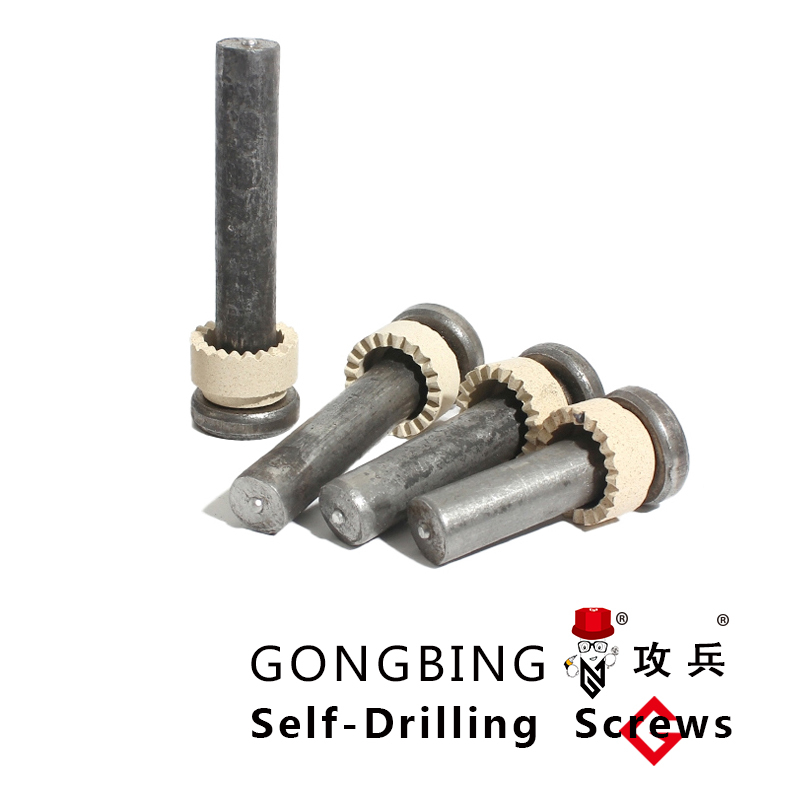Understanding J-Type Foundation Bolts for Structural Applications and Design Considerations
Understanding Foundation Bolt J-Type A Comprehensive Overview
Foundation bolts are critical components in the construction and engineering sectors, providing the essential support for various structures, machinery, and equipment. Among the variety of foundation bolts available, the J-type foundation bolt plays a significant role due to its distinct design and functionality. In this article, we will explore the characteristics, applications, installation procedures, and advantages of J-type foundation bolts.
What is a J-Type Foundation Bolt?
A J-type foundation bolt is a specific design of anchor bolt characterized by its J-shaped end, which provides exceptional resistance against pull-out forces. Typically made from high-strength steel, these bolts are designed to anchor structures to concrete, ensuring stability and safety. The ‘J’ shape allows for effective load distribution and prevents the bolt from being pulled out under extreme conditions, making them ideal for heavy-duty applications.
Characteristics of J-Type Foundation Bolts
1. Material Most J-type foundation bolts are manufactured from carbon steel or stainless steel, offering a balance of strength and corrosion resistance. This ensures longevity and reliability in various environmental conditions.
2. Dimensions J-type foundation bolts come in diverse sizes and lengths, depending on the specific requirements of the project. The diameter of the bolt, as well as the length of the J-hook, is customizable to fit different structural needs.
3. Threading The threaded section of the bolt allows for secure attachment to nuts or other structural components. This threading is usually located on the straight part of the bolt, enabling an efficient fastening mechanism.
4. Finish Depending on the working environment, J-type bolts can be coated with various finishes (such as galvanizing) to enhance their corrosion resistance.
Applications of J-Type Foundation Bolts
J-type foundation bolts find utility in numerous applications across various industries
1. Construction These bolts are commonly used to secure structural steel beams to concrete foundations, particularly in commercial and industrial buildings. They provide the necessary anchoring to sustain significant loads.
2. Machinery In industrial plants, J-type foundation bolts play an important role in securing heavy machinery to concrete bases, ensuring that vibrations or dynamic loads do not dislodge the equipment.
3. Bridges and Infrastructure Engineers often utilize J-type foundation bolts in bridge construction and other infrastructural projects where stability and durability are paramount.
foundation bolt j type

4. Wind Turbines These foundation bolts are critical in anchoring wind turbine towers, where the forces exerted by wind require robust and reliable fixing solutions.
Installation Procedures
The successful installation of J-type foundation bolts requires precise planning and execution
1. Site Preparation The area of installation must be prepared by ensuring that the concrete surface is clean and free of debris.
2. Positioning Before pouring concrete, the J-type bolts must be positioned accurately according to the design specifications. Templates or guides may be used to ensure correct alignment.
3. Concrete Pouring Once the bolts are in place, concrete is poured around them, allowing for adequate curing time. Care should be taken to monitor the integrity of the bolts throughout the curing process.
4. Final Tightening Once the concrete has fully cured, the threaded portion of the J-bolt can be tightened with appropriate nuts to ensure a secure connection.
Advantages of J-Type Foundation Bolts
1. Enhanced Stability The unique shape of the J-type bolt helps distribute loads more evenly, reducing the risk of structural failure.
2. Strong Resistance to Pull-Out Forces The design of the J-shaped end provides added safety against lifting forces, making them ideal for dynamic applications.
3. Versatility J-type bolts can be used in various construction and industrial contexts, making them a flexible choice for engineers and builders.
4. Durability Constructed from high-strength materials, J-type foundation bolts are designed for longevity and withstand harsh environmental conditions.
Conclusion
In summary, J-type foundation bolts are vital components in ensuring the stability and safety of various structures and machinery. Their unique design, versatility, and strength make them a popular choice in construction projects across the globe. Understanding their properties and installation procedures is crucial for engineers and site managers looking to achieve reliable and long-lasting results. By incorporating J-type foundation bolts into their projects, stakeholders can contribute to the building of safer and more resilient infrastructures.
-
Weatherproof Plastic Expansion Anchors for OutdoorNewsJun.06,2025
-
Sustainability in the Supply Chain: Eco-Friendly TEK Screws ProductionNewsJun.06,2025
-
Load-Bearing Capacity of External Insulation FixingsNewsJun.06,2025
-
Double Head Bolts: Enhancing Efficiency in Industrial MachineryNewsJun.06,2025
-
Corrosion Resistance in Chipboard Screws: Coatings for Wholesale DurabilityNewsJun.06,2025
-
Butterfly Toggle Bolts : Enhancing Structural ResilienceNewsJun.06,2025
